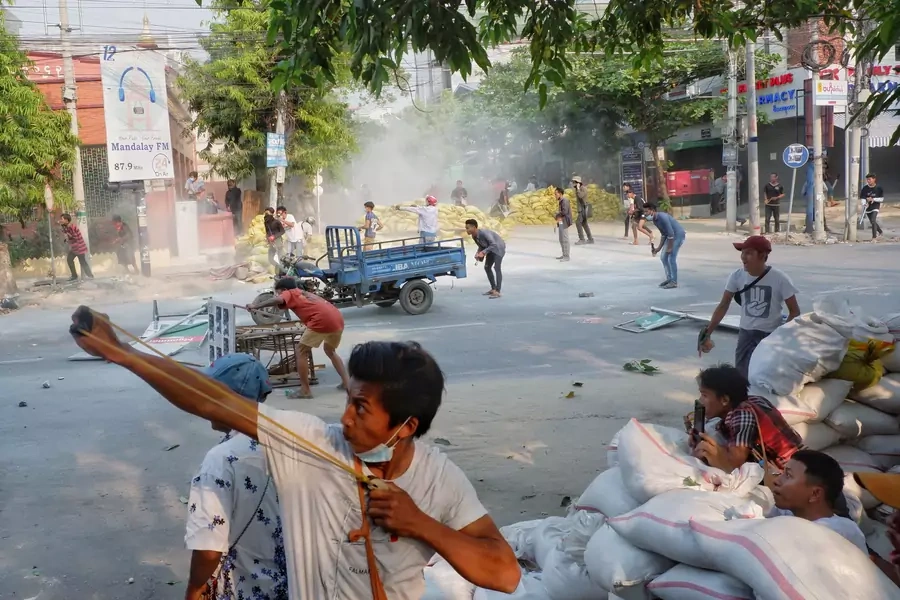Myanmar’s Humanitarian Crisis Deepens

Along with the increasing repression of the Myanmar junta, which has included putting Aung San Suu Kyi on trial for sedition and other supposed crimes, detaining foreign journalists including Americans, and increasingly stepping up fighting with ethnic armed organizations in states like Kayah, Chin, and Shan states, Myanmar is increasingly disintegrating into a massive humanitarian crisis and state collapse. In a recent essay in Foreign Affairs, the author Thant Myint-U captures some of this collapse, but it worth going into greater detail about the disaster unfolding in Myanmar. I wrote about the crisis last month, but it continues to get worse.
Hunger and Medical Care: Myanmar’s collapsing economy, unrest, collapse of its public health system and the banking system, and growing internal migration, combined with the difficulty of getting aid into the country, are leading to a hunger crisis that could soon rank among the worst in the world. The World Food Program argues that some 6.2 million people in Myanmar will face a severe hunger crisis in the coming months, and that number increasingly seems understated, as the level of chaos spreads in Myanmar, with citizens frustrated with nonviolent protest increasingly using urban guerilla-type tactics to attack soldiers, and fleeing to ethnic minority areas to gain knowledge of armed operations. Food and fuel prices also are rising, adding to the looming catastrophe.
More on:
Hospitals in Myanmar have been decimated, both because soldiers have commandeered hospitals, scaring off many people from visiting, and because medical staff walking off the job in solidarity with the civil disobedience movement. Basic medical care is no longer being provided in much of the country, vaccinations for COVID-19 and other diseases are not being given out, people are dying of preventable diseases, and with hospitals and public health facilities unlikely to open any time soon, there will be a long-running impact on public health that will last years.
Employment: Virtually every sector in Myanmar, outside those in the illegal economy, is collapsing, and unemployment, always hard to measure, is surely skyrocketing. The agricultural sector, so important to livelihoods and full stomachs, is failing. With this being the current growing season, farmers cannot get loans, and many cannot plan, presaging disaster in the next year. Meanwhile, small businesses in Yangon, Mandalay and other cities are increasingly unable to operate, since it is hard to obtain cash to pay workers, violence and chaos is reigning in major cities, and the overall uncertainty is destroying the business climate.
Many foreign companies have begun to retreat as well. A survey of foreign companies in Myanmar taken by ten foreign chambers of commerce and released in May found that a third of the firms had reduced their activities in the country by 75 percent, 13 percent of the companies had stopped all business in the country, and many others had made slightly less dramatic cuts to their business operations in the country. As the violence spirals in major cities, with more bomb attacks, shootings, and other types of unrest, foreign companies may retreat further.
Household Income: The United Nations Development Program (UNDP) has reported that over 80 percent of Myanmar households have seen their household income drop in the past year. In a lengthy report, it has further predicted that about half of Myanmar’s population could tumble into poverty by 2022. And the country was not exactly operating from a high-income base before the coup. It was already one of the poorest states in East Asia, with high levels of poverty and inequality. As the UNDP noted, before the coup Myanmar citizens were living “on low levels of consumption that put them at risk of falling into poverty.” Many of these people, with no other options, will flee into neighboring states, where they will be highly vulnerable, and will further stabilize the Thai-Myanmar and Myanmar-China borders.
More on:
 Online Store
Online Store